afterLoad (456.3KB) (5.86ms)
afterInitialise (1.27MB) (75.02ms)
afterRoute (827.66KB) (29.66ms)
beforeRenderComponent com_content (35.2KB) (343μs)
Before Access::preloadComponents (all components) (67.27KB) (11.17ms)
After Access::preloadComponents (all components) (98.07KB) (6.51ms)
Before Access::preloadPermissions (com_content) (1.6KB) (22μs)
After Access::preloadPermissions (com_content) (3.29MB) (44.89ms)
Before Access::getAssetRules (id:62 name:com_content.category.20) (130.65KB) (185μs)
After Access::getAssetRules (id:62 name:com_content.category.20) (7.38KB) (80μs)
Before Access::getAssetRules (id:8 name:com_content) (51.77KB) (101ms)
After Access::getAssetRules (id:8 name:com_content) (6.17KB) (40μs)
afterRenderComponent com_content (1.46MB) (753ms)
afterDispatch (32.39KB) (40.2ms)
beforeRenderRawModule mod_articles_category (READ MORE...) (398.66KB) (42.41ms)
afterRenderRawModule mod_articles_category (READ MORE...) (64.6KB) (681ms)
beforeRenderRawModule mod_custom (BOOST YOUR IMMUNE DEFENSE) (6.45KB) (48μs)
afterRenderRawModule mod_custom (BOOST YOUR IMMUNE DEFENSE) (4.42KB) (1.39ms)
beforeRenderRawModule mod_articles_latest (Latest news) (976B) (29μs)
afterRenderRawModule mod_articles_latest (Latest news) (51.22KB) (653ms)
beforeRenderRawModule mod_tags_popular (Search) (2.09KB) (30μs)
afterRenderRawModule mod_tags_popular (Search) (28.05KB) (321ms)
beforeRenderRawModule mod_custom (the Vitamin and Mineral Guide) (960B) (25μs)
afterRenderRawModule mod_custom (the Vitamin and Mineral Guide) (1.02KB) (41μs)
beforeRenderRawModule mod_custom (Weight loss that works) (736B) (10μs)
afterRenderRawModule mod_custom (Weight loss that works) (928B) (20μs)
beforeRenderRawModule mod_custom (Get additionel and more detailed knowledge ) (752B) (9μs)
afterRenderRawModule mod_custom (Get additionel and more detailed knowledge ) (944B) (17μs)
beforeRenderRawModule mod_custom (Q10 goes by many names) (736B) (8μs)
afterRenderRawModule mod_custom (Q10 goes by many names) (928B) (17μs)
beforeRenderRawModule mod_custom (Check this before you buy a Q10 product) (752B) (7μs)
afterRenderRawModule mod_custom (Check this before you buy a Q10 product) (944B) (16μs)
beforeRenderRawModule mod_custom (Are you taking supplements) (736B) (8μs)
afterRenderRawModule mod_custom (Are you taking supplements) (2.28KB) (16μs)
beforeRenderRawModule mod_custom (Antiaging) (720B) (13.15ms)
afterRenderRawModule mod_custom (Antiaging) (912B) (67μs)
beforeRenderRawModule mod_custom (Exercise) (720B) (14μs)
afterRenderRawModule mod_custom (Exercise) (912B) (23μs)
beforeRenderRawModule mod_custom (Useful Links) (720B) (9μs)
afterRenderRawModule mod_custom (Useful Links) (1.02KB) (18μs)
beforeRenderModule mod_articles_category (READ MORE...) (268.2KB) (14.58ms)
afterRenderModule mod_articles_category (READ MORE...) (1.25KB) (53μs)
beforeRenderModule mod_custom (BOOST YOUR IMMUNE DEFENSE) (6.81KB) (13μs)
afterRenderModule mod_custom (BOOST YOUR IMMUNE DEFENSE) (1.28KB) (23μs)
beforeRenderModule mod_articles_latest (Latest news) (592B) (10μs)
afterRenderModule mod_articles_latest (Latest news) (1.27KB) (19μs)
beforeRenderModule mod_tags_popular (Search) (1.73KB) (10μs)
afterRenderModule mod_tags_popular (Search) (1.27KB) (18μs)
beforeRenderModule mod_custom (the Vitamin and Mineral Guide) (1.31KB) (9μs)
afterRenderModule mod_custom (the Vitamin and Mineral Guide) (1.28KB) (17μs)
beforeRenderModule mod_custom (Weight loss that works) (336B) (8μs)
afterRenderModule mod_custom (Weight loss that works) (1.27KB) (16μs)
beforeRenderModule mod_custom (Get additionel and more detailed knowledge ) (368B) (7.1ms)
afterRenderModule mod_custom (Get additionel and more detailed knowledge ) (1.3KB) (65μs)
beforeRenderModule mod_custom (Q10 goes by many names) (336B) (19μs)
afterRenderModule mod_custom (Q10 goes by many names) (1.27KB) (23μs)
beforeRenderModule mod_custom (Check this before you buy a Q10 product) (352B) (10μs)
afterRenderModule mod_custom (Check this before you buy a Q10 product) (1.28KB) (19μs)
beforeRenderModule mod_custom (Are you taking supplements) (352B) (8μs)
afterRenderModule mod_custom (Are you taking supplements) (1.28KB) (19μs)
beforeRenderModule mod_custom (Antiaging) (336B) (8μs)
afterRenderModule mod_custom (Antiaging) (1.27KB) (30μs)
beforeRenderModule mod_custom (Exercise) (336B) (9μs)
afterRenderModule mod_custom (Exercise) (1.25KB) (20μs)
beforeRenderModule mod_custom (Useful Links) (336B) (8μs)
afterRenderModule mod_custom (Useful Links) (3.77KB) (18μs)
beforeRenderRawModule mod_menu (Main Menu - English) (37.51KB) (3.99ms)
afterRenderRawModule mod_menu (Main Menu - English) (190.16KB) (10.03ms)
beforeRenderModule mod_menu (Main Menu - English) (720B) (5μs)
afterRenderModule mod_menu (Main Menu - English) (4.86KB) (53μs)
beforeRenderRawModule mod_languages (Sprogskift) (3.94KB) (18μs)
afterRenderRawModule mod_languages (Sprogskift) (21.83KB) (9.46ms)
beforeRenderModule mod_languages (Sprogskift) (720B) (5μs)
afterRenderModule mod_languages (Sprogskift) (5.31KB) (18μs)
beforeRenderRawModule mod_finder () (6.34KB) (11μs)
afterRenderRawModule mod_finder () (132.96KB) (15.54ms)
beforeRenderModule mod_finder () (704B) (5μs)
afterRenderModule mod_finder () (3.29KB) (30μs)
beforeRenderRawModule mod_custom () (6.62KB) (133μs)
afterRenderRawModule mod_custom () (26.52KB) (14.26ms)
beforeRenderModule mod_custom () (704B) (5μs)
afterRenderModule mod_custom () (1.23KB) (44μs)
beforeRenderRawModule mod_menu (Main Menu - English) (5.07KB) (99μs)
afterRenderRawModule mod_menu (Main Menu - English) (6.3KB) (1.71ms)
beforeRenderModule mod_menu (Main Menu - English) (720B) (4μs)
afterRenderModule mod_menu (Main Menu - English) (1.25KB) (42μs)
beforeRenderRawModule mod_languages (Sprogskift Mobil) (912B) (15μs)
afterRenderRawModule mod_languages (Sprogskift Mobil) (3.89KB) (6.74ms)
beforeRenderModule mod_languages (Sprogskift Mobil) (720B) (5μs)
afterRenderModule mod_languages (Sprogskift Mobil) (1.27KB) (56μs)
beforeRenderRawModule mod_finder () (2.3KB) (20μs)
afterRenderRawModule mod_finder () (6.29KB) (7.05ms)
beforeRenderModule mod_finder () (704B) (5μs)
afterRenderModule mod_finder () (1.23KB) (44μs)
beforeRenderRawModule mod_custom () (8.66KB) (166μs)
afterRenderRawModule mod_custom () (904B) (132μs)
beforeRenderModule mod_custom () (704B) (2μs)
afterRenderModule mod_custom () (2.43KB) (33μs)
beforeRenderRawModule mod_custom () (688B) (75μs)
afterRenderRawModule mod_custom () (896B) (89μs)
beforeRenderModule mod_custom () (704B) (2μs)
afterRenderModule mod_custom () (2.71KB) (19μs)
afterRender (293.16KB) (29.29ms)
| 1 x afterRenderComponent com_content (1.46MB) (25.86%) | 752.67ms |
| 1 x afterRenderRawModule mod_articles_category (READ MORE...) (64.6KB) (23.4%) | 681.19ms |
| 1 x afterRenderRawModule mod_articles_latest (Latest news) (51.22KB) (22.45%) | 653.43ms |
| 1 x afterRenderRawModule mod_tags_popular (Search) (28.05KB) (11.03%) | 320.99ms |
| 1 x Before Access::getAssetRules (id:8 name:com_content) (51.77KB) (3.48%) | 101.40ms |
| 1 x afterInitialise (1.27MB) (2.58%) | 75.02ms |
| 1 x After Access::preloadPermissions (com_content) (3.29MB) (1.54%) | 44.89ms |
| 1 x beforeRenderRawModule mod_articles_category (READ MORE...) (398.66KB) (1.46%) | 42.41ms |
| 1 x afterDispatch (32.39KB) (1.38%) | 40.20ms |
| 1 x afterRoute (827.66KB) (1.02%) | 29.66ms |
| 1 x afterRender (293.16KB) (1.01%) | 29.29ms |
| 1 x afterRenderRawModule mod_finder () (132.96KB) (0.53%) | 15.54ms |
| 1 x beforeRenderModule mod_articles_category (READ MORE...) (268.2KB) (0.5%) | 14.58ms |
| 1 x afterRenderRawModule mod_custom () (26.52KB) (0.49%) | 14.26ms |
| 1 x beforeRenderRawModule mod_custom (Antiaging) (720B) (0.45%) | 13.15ms |
| 1 x Before Access::preloadComponents (all components) (67.27KB) (0.38%) | 11.17ms |
| 1 x afterRenderRawModule mod_menu (Main Menu - English) (190.16KB) (0.34%) | 10.03ms |
| 1 x afterRenderRawModule mod_languages (Sprogskift) (21.83KB) (0.33%) | 9.46ms |
| 1 x beforeRenderModule mod_custom (Get additionel and more detailed knowledge ) (368B) (0.24%) | 7.10ms |
| 1 x afterRenderRawModule mod_finder () (6.29KB) (0.24%) | 7.05ms |
| 1 x afterRenderRawModule mod_languages (Sprogskift Mobil) (3.89KB) (0.23%) | 6.74ms |
| 1 x After Access::preloadComponents (all components) (98.07KB) (0.22%) | 6.51ms |
| 1 x afterLoad (456.3KB) (0.2%) | 5.86ms |
| 1 x beforeRenderRawModule mod_menu (Main Menu - English) (37.51KB) (0.14%) | 3.99ms |
| 1 x afterRenderRawModule mod_menu (Main Menu - English) (6.3KB) (0.06%) | 1.71ms |
| 1 x afterRenderRawModule mod_custom (BOOST YOUR IMMUNE DEFENSE) (4.42KB) (0.05%) | 1.39ms |
| 1 x beforeRenderComponent com_content (35.2KB) (0.01%) | 343μs |
| 1 x Before Access::getAssetRules (id:62 name:com_content.category.20) (130.65KB) (0.01%) | 185μs |
| 1 x beforeRenderRawModule mod_custom () (8.66KB) (0.01%) | 166μs |
| 1 x beforeRenderRawModule mod_custom () (6.62KB) (0%) | 133μs |
| 1 x afterRenderRawModule mod_custom () (904B) (0%) | 132μs |
| 1 x beforeRenderRawModule mod_menu (Main Menu - English) (5.07KB) (0%) | 99μs |
| 1 x afterRenderRawModule mod_custom () (896B) (0%) | 89μs |
| 1 x After Access::getAssetRules (id:62 name:com_content.category.20) (7.38KB) (0%) | 80μs |
| 1 x beforeRenderRawModule mod_custom () (688B) (0%) | 75μs |
| 1 x afterRenderRawModule mod_custom (Antiaging) (912B) (0%) | 67μs |
| 1 x afterRenderModule mod_custom (Get additionel and more detailed knowledge ) (1.3KB) (0%) | 65μs |
| 1 x afterRenderModule mod_languages (Sprogskift Mobil) (1.27KB) (0%) | 56μs |
| 1 x afterRenderModule mod_articles_category (READ MORE...) (1.25KB) (0%) | 53μs |
| 1 x afterRenderModule mod_menu (Main Menu - English) (4.86KB) (0%) | 53μs |
| 1 x beforeRenderRawModule mod_custom (BOOST YOUR IMMUNE DEFENSE) (6.45KB) (0%) | 48μs |
| 1 x afterRenderModule mod_custom () (1.23KB) (0%) | 44μs |
| 1 x afterRenderModule mod_finder () (1.23KB) (0%) | 44μs |
| 1 x afterRenderModule mod_menu (Main Menu - English) (1.25KB) (0%) | 42μs |
| 1 x afterRenderRawModule mod_custom (the Vitamin and Mineral Guide) (1.02KB) (0%) | 41μs |
| 1 x After Access::getAssetRules (id:8 name:com_content) (6.17KB) (0%) | 40μs |
| 1 x afterRenderModule mod_custom () (2.43KB) (0%) | 33μs |
| 1 x beforeRenderRawModule mod_tags_popular (Search) (2.09KB) (0%) | 30μs |
| 1 x afterRenderModule mod_custom (Antiaging) (1.27KB) (0%) | 30μs |
| 1 x afterRenderModule mod_finder () (3.29KB) (0%) | 30μs |
| 1 x beforeRenderRawModule mod_articles_latest (Latest news) (976B) (0%) | 29μs |
| 1 x beforeRenderRawModule mod_custom (the Vitamin and Mineral Guide) (960B) (0%) | 25μs |
| 1 x afterRenderModule mod_custom (BOOST YOUR IMMUNE DEFENSE) (1.28KB) (0%) | 23μs |
| 1 x afterRenderRawModule mod_custom (Exercise) (912B) (0%) | 23μs |
| 1 x afterRenderModule mod_custom (Q10 goes by many names) (1.27KB) (0%) | 23μs |
| 1 x Before Access::preloadPermissions (com_content) (1.6KB) (0%) | 22μs |
| 1 x afterRenderRawModule mod_custom (Weight loss that works) (928B) (0%) | 20μs |
| 1 x afterRenderModule mod_custom (Exercise) (1.25KB) (0%) | 20μs |
| 1 x beforeRenderRawModule mod_finder () (2.3KB) (0%) | 20μs |
| 1 x beforeRenderModule mod_custom (Q10 goes by many names) (336B) (0%) | 19μs |
| 1 x afterRenderModule mod_custom (Check this before you buy a Q10 product) (1.28KB) (0%) | 19μs |
| 1 x afterRenderModule mod_custom (Are you taking supplements) (1.28KB) (0%) | 19μs |
| 1 x afterRenderModule mod_custom () (2.71KB) (0%) | 19μs |
| 1 x afterRenderModule mod_articles_latest (Latest news) (1.27KB) (0%) | 19μs |
| 1 x afterRenderRawModule mod_custom (Useful Links) (1.02KB) (0%) | 18μs |
| 1 x afterRenderModule mod_tags_popular (Search) (1.27KB) (0%) | 18μs |
| 1 x afterRenderModule mod_custom (Useful Links) (3.77KB) (0%) | 18μs |
| 1 x beforeRenderRawModule mod_languages (Sprogskift) (3.94KB) (0%) | 18μs |
| 1 x afterRenderModule mod_languages (Sprogskift) (5.31KB) (0%) | 18μs |
| 1 x afterRenderRawModule mod_custom (Get additionel and more detailed knowledge ) (944B) (0%) | 17μs |
| 1 x afterRenderRawModule mod_custom (Q10 goes by many names) (928B) (0%) | 17μs |
| 1 x afterRenderModule mod_custom (the Vitamin and Mineral Guide) (1.28KB) (0%) | 17μs |
| 1 x afterRenderModule mod_custom (Weight loss that works) (1.27KB) (0%) | 16μs |
| 1 x afterRenderRawModule mod_custom (Check this before you buy a Q10 product) (944B) (0%) | 16μs |
| 1 x afterRenderRawModule mod_custom (Are you taking supplements) (2.28KB) (0%) | 16μs |
| 1 x beforeRenderRawModule mod_languages (Sprogskift Mobil) (912B) (0%) | 15μs |
| 1 x beforeRenderRawModule mod_custom (Exercise) (720B) (0%) | 14μs |
| 1 x beforeRenderModule mod_custom (BOOST YOUR IMMUNE DEFENSE) (6.81KB) (0%) | 13μs |
| 1 x beforeRenderRawModule mod_finder () (6.34KB) (0%) | 11μs |
| 1 x beforeRenderRawModule mod_custom (Weight loss that works) (736B) (0%) | 10μs |
| 1 x beforeRenderModule mod_articles_latest (Latest news) (592B) (0%) | 10μs |
| 1 x beforeRenderModule mod_tags_popular (Search) (1.73KB) (0%) | 10μs |
| 1 x beforeRenderModule mod_custom (Check this before you buy a Q10 product) (352B) (0%) | 10μs |
| 2 x beforeRenderModule mod_finder () (704B) (0%) | 10μs |
| 1 x beforeRenderRawModule mod_custom (Useful Links) (720B) (0%) | 9μs |
| 1 x beforeRenderModule mod_custom (the Vitamin and Mineral Guide) (1.31KB) (0%) | 9μs |
| 2 x beforeRenderModule mod_menu (Main Menu - English) (720B) (0%) | 9μs |
| 3 x beforeRenderModule mod_custom () (704B) (0%) | 9μs |
| 1 x beforeRenderRawModule mod_custom (Get additionel and more detailed knowledge ) (752B) (0%) | 9μs |
| 1 x beforeRenderModule mod_custom (Exercise) (336B) (0%) | 9μs |
| 1 x beforeRenderRawModule mod_custom (Are you taking supplements) (736B) (0%) | 8μs |
| 1 x beforeRenderModule mod_custom (Antiaging) (336B) (0%) | 8μs |
| 1 x beforeRenderModule mod_custom (Useful Links) (336B) (0%) | 8μs |
| 1 x beforeRenderRawModule mod_custom (Q10 goes by many names) (736B) (0%) | 8μs |
| 1 x beforeRenderModule mod_custom (Weight loss that works) (336B) (0%) | 8μs |
| 1 x beforeRenderModule mod_custom (Are you taking supplements) (352B) (0%) | 8μs |
| 1 x beforeRenderRawModule mod_custom (Check this before you buy a Q10 product) (752B) (0%) | 7μs |
| 1 x beforeRenderModule mod_languages (Sprogskift) (720B) (0%) | 5μs |
| 1 x beforeRenderModule mod_languages (Sprogskift Mobil) (720B) (0%) | 5μs |
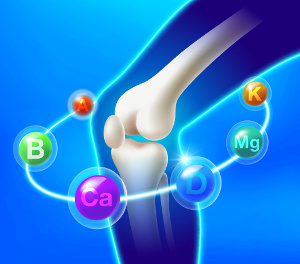 Strong bones require minerals such as calcium and magnesium. It is also known that vitamin D plays a role in calcium absorption, and deficiencies are common among the elderly. Furthermore, deficiencies in vitamin A, folic acid, and vitamin K appear to be much more widespread among elderly patients with bone fractures compared to healthy control groups. This is highlighted in a new study published in Frontiers in Nutrition, where the researchers take a closer look at the importance of vitamins for bone health.
Strong bones require minerals such as calcium and magnesium. It is also known that vitamin D plays a role in calcium absorption, and deficiencies are common among the elderly. Furthermore, deficiencies in vitamin A, folic acid, and vitamin K appear to be much more widespread among elderly patients with bone fractures compared to healthy control groups. This is highlighted in a new study published in Frontiers in Nutrition, where the researchers take a closer look at the importance of vitamins for bone health.








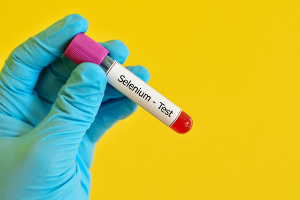
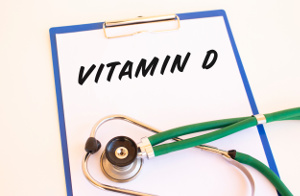



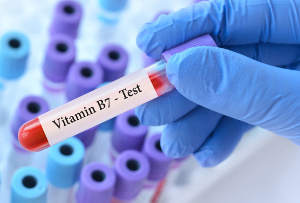 The B vitamin
The B vitamin 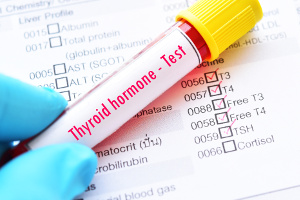
 Deficiencies of
Deficiencies of 
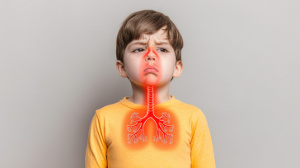 A growing number of children are affected by asthma, which is associated with a reduced quality of life. Diet plays a significant role in the development of the disease, and it appears that excessive sugar intake from breakfast cereals, soft drinks, candy, and other sources increases the risk. A deficiency in
A growing number of children are affected by asthma, which is associated with a reduced quality of life. Diet plays a significant role in the development of the disease, and it appears that excessive sugar intake from breakfast cereals, soft drinks, candy, and other sources increases the risk. A deficiency in 